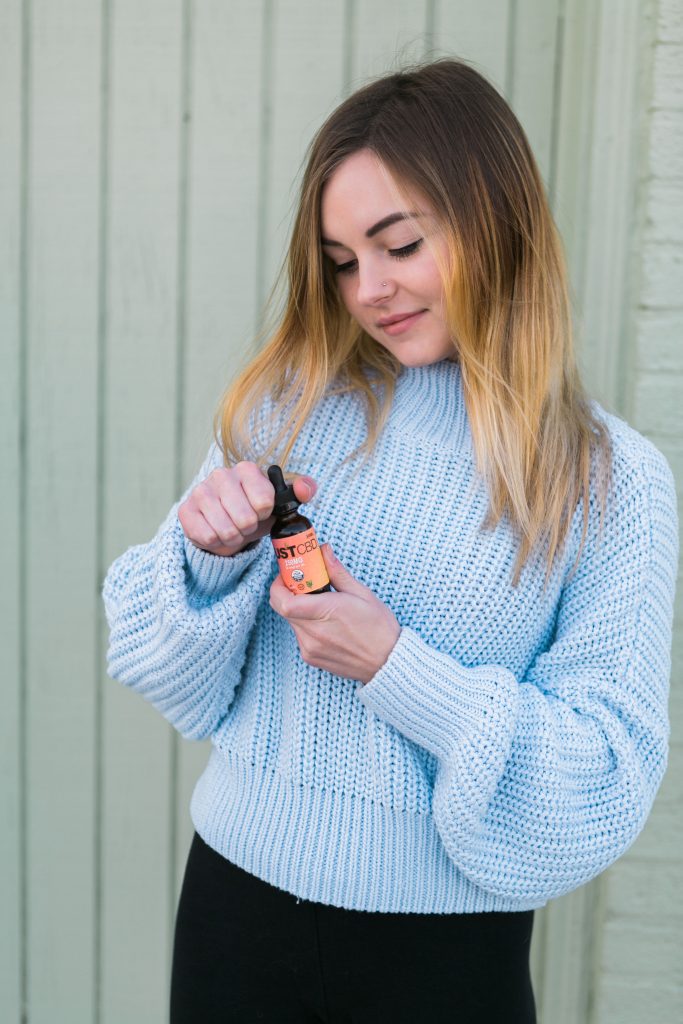From certain diets to specialized products, the year has brought a variety of buzzy wellness trends. 2020 will prove quite the year, for several reasons.
Not only headlines have held the names of these wellness trends, celebrity social media posts have also promoted certain diets in 2020 already and even more signing up.
The keto diet, for example, has gotten praise from “Jersey Shore” star Vinny Guadagnino, which he credits for losing 50 pounds. And although they never directly reference keto, Khloe Kardashian and Vanessa Hudgens both credit their weight loss to a high fat, low carb diet. With even more of this in 2020 we can expect to have CBD very popular and for all good reason.
We’ve rounded up some of the biggest headline-making trends, in no particular order:
Veganism
Though vegan diets started creeping into the mainstream in the last couple of years, 2019 saw the biggest increase in vegan hype and headlines.
From plant-based fast food options becoming available across the country, like Burger King’s Impossible Whopper, to articles on how to vegan-ize your Thanksgiving, this year has brought veganism to the forefront.
And it’s not only fast food – other industries are taking note too.
In September, Walt Disney World announced that it will begin offering hundreds of plant-based options for its park-goers at all of its major quick and table service restaurants. Vegan options are also coming to Disneyland in spring 2020.
Celebrities speaking up about veganism has also been prevalent this year, from Jaden Smith’s ups and downs with the diet to pop newcomer Billie Eilish slamming Lady Gaga’s meat dress.
Keto diet
Though the ketogenic diet has been around for a while, it was everywhere in 2019, from keto movie theater snacks to celebrity endorsements.
In the diet, carbs are ditched to make room for high-quality fats and proteins. After several days of strict adherence, the body pushes through a period of lethargy to arrive at ketosis. In this highly efficient metabolic state, you burn stored fat for fuel and those stubborn love handles finally fade away.
To enter ketosis, dieters need to be eating fewer than 50 grams of carbs a day for a few days while maintaining a diet that’s high in fat.
Some celebrity endorsements include Vanessa Hudgens plugging the “perfect keto snack!!,” on her Instagram April, which was a Slim Fast keto peanut butter cup.
Alicia Vikander’s trainer says she got her “Tomb Raider” physique from seven months of hard training and adhering to the keto diet.
CBD oil
Cannabidiol, the popular hemp plant derivative marketed as a cure-all for just about any condition, has only been approved by federal regulators to treat some rare forms of epilepsy, but its popularity quickly grew in 2019. 2020’s growth will double, if not triple, again, all for great reason.
In April 2019, there were 6.4 million CBD Google searches.
CBD, a non-psychoactive that shouldn’t contain the “high” producing THC chemical, has popped up on shelves across the country in oil, extract, vaporized liquid and capsule form.
The product, which has found its way into natural medicine, cosmetics and even food has caused some issues, however, due to confusion surrounding its legality.
CBD may aid weight loss due to how it works in the body.
The body has a built-in endocannabinoid system. This system responds to different compounds in the body through two cannabinoid (CB) receptors, called the CB1 and CB2 receptors.
Usually, CB1 receptors exist mainly in the brain and central nervous system and are almost nonexistent in the rest of the body. CB2 receptors, on the other hand, exist throughout the body.
In people with obesity, however, CB1 receptors become more widespread, especially in fatty tissue. Because of this, researchers believe that there may be a link between the activation of the CB1 receptors and obesity.
CBD does not activate the CB receptors directly, instead influencing the body’s natural cannabinoids to either block off or activate the receptors. This may play a role in weight loss or other critical metabolic functions.
There is some evidence to suggest that CBD can help a person lose weight or help prevent metabolic disorders.

Claims and research
Some people claim that CBD Reduces appetite.
Many proponents say that the compound can help a person lose weight by reducing their appetite.
Most people associate cannabis with a stimulated appetite, as people who smoke cannabis tend to feel more hungry than usual. While it is true that tetrahydrocannabinol (THC), the psychoactive component of cannabis, may cause hunger, CBD does not.
THC activates the CB1 receptors in the body, causing many effects, including stimulating the appetite. However, as the authors of one 2018 study paper note, CB1 receptor antagonists may help reduce appetite and control obesity. This is because CB1 receptor agonists block off or “deactivate” the receptor.
CBD does not deactivate CB1 receptors but may influence other molecules to block them off. Shutting off these receptors may help reduce the appetite and prevent overeating in some people.
An older animal study from 2012 found that exposure to CBD reduced appetite in rats. While there is plenty of anecdotal evidence to suggest that CBD is helpful for appetite suppression, there have been no direct studies that show CBD reduces appetite in humans.
“Turns bad fat into good fat”
Proponents of CBD for weight loss also claim that it can convert white, or “bad,” fat into brown fat, which may help the body burn calories.
White fat may also increase the risk of many chronic conditions, such as heart disease and diabetes.
A 2016 study helps back up this claim. The researchers found that CBD plays multiple roles in how the body interacts with fat.
Not only did CBD help convert white fat cells into brown fat cells, it also stimulated the body to break down fats more efficiently.
The researchers note that CBD may be a promising therapy for preventing obesity, but more studies in humans are necessary.
Burns fat
Another claim is that CBD melts away fat in the body by breaking down the fat and helping eliminate it from the body as waste.
Research from 2018 helps explain this phenomenon. The process of turning white fat cells to brown fat cells actually changes how these cells act in the body.
Brown fat cells may be a more active form of fat. They burn off energy as heat, meaning that they actually burn calories.
As a loss of calories is vital for weight loss, CBD may help burn fat if it turns white fat to brown fat in the body.
Reduces the risk of metabolic disorders
As other 2018 research notes, there is a close link between obesity and several metabolic disorders, such as type 2 diabetes, high blood pressure, and high cholesterol.
The overactivation of the CB receptors in the body may be partly responsible for this. Overactivation of the CB1 receptors in the fat tissue throughout the body could contribute to obesity and metabolic risks.
CBD helps block off the CB1 receptors, meaning that it might reduce the risk of obesity.
A review in Cannabis and Cannabinoid Research also notes some highlights of past studies surrounding CBD and metabolic factors, mainly in animal models.
For instance, a treatment using CBD reduced total cholesterol by 25 percent in obese rats. The anti-inflammatory and antioxidant effects of CBD also appeared to decrease blood sugar levels and increase markers for liver health.
Risks and considerations
While initial results from studies on CBD and weight loss put forth some promising suggestions, there are a few important things to consider.
CBD, or any other compound, supplement, or drug, is not a treatment for obesity. These supplements and compounds do not replace a healthful diet and regular exercise.
A person who adds CBD to their weight loss plan without also exercising and eating healthfully may not see any benefits.
At best, people can consider CBD as a complementary therapy. Not all bodies are the same, and each person may need a slightly different dose.
Someone with more body weight or someone who regularly uses cannabis may need a higher dose, whereas someone who is very sensitive to cannabis or CBD may only need to take a very small amount for the compound to be effective.
It is best to work directly with a doctor when using CBD for weight loss. Doctors will want to discuss any other medications the person is taking, as CBD may cause adverse interactions.
The initial results of studies into CBD and weight loss are promising and may prompt more research into the connection between them.
CBD may be helpful for people looking to lose weight, burn calories, or suppress appetite, but it is vital not to overstate these claims.
A healthful diet and plenty of exercise are still the best weight loss strategies.
CBD should not replace any other medications a person is taking for chronic conditions. People should talk to a doctor before using CBD for any reason, as it may interact with their existing medications.
Oat milk
Forget soy and almond milk, 2019 was all about oat milk for a go-to non-dairy alternative.
Oat milk gained popularity thanks in part to the U.S. arrival of Swedish company Oatly. The company, which was formed in the early ’90s, brought its oat drink to the states starting at Intelligentsia coffee shops last year.
In addition to a milk-change up for your cereal and lattes, oat milk is also coming in the form of yogurt soon.
Now the gluten-free and sugar-free product is available in upwards of 2,200 coffee shops and 1,000 grocery stores across the country from Seattle to Northwest Arkansas and Brooklyn, says Oatly’s general manager Mike Messersmith.
Earlier this year, Danone North America, which sells Dannon yogurt, announced a line of oat-milk yogurt alternatives under its Silk brand.
Sorry, soy and almond:Why oat milk is the new ‘it’ milk alternative
Pegan diet
A cross between paleo and vegan diets, the Pegan diet was originally written about on functional medicine doctor Mark Hyman’s blog in 2014. The doctor’s buzzworthy brainchild caught on to the mainstream in 2019, however, with Pinterest reporting a 337% increase in people searching for the term as of October.
“While Pegan involves leaving out certain foods – like refined sugar and flour, conventionally raised animal products and chemical additives – it’s so much more focused on what we can eat for optimal health,” Hyman explained to USA TODAY partner MakeItGrateful.com.
He continued, “Eating this way means you don’t have to count calories because when you eat the whole, nutrient-dense foods, you’re naturally satiated.”
Intermittent fasting
Most people are aware of fasting for religious reasons, but 2019 brought a whole new meaning to the practice when paired with the word “intermittent.”
The trendy dieting advice suggest alternating between certain periods of eating and not eating. The method has been used as a way to lose weight and for other benefits. A study from The National Institute on Aging last year suggests that intermittent fasting could be the key to longevity.
Food fasting isn’t the only kind to pop up this year, either.
“Dopamine fasting” has become a mindfulness practice that has taken off at the end of the year, about a year after Youtuber Improvement Pill published a video where he perhaps coined the term while describing his routine meant to “Get Your Life Back Together,” as the video title says.
The term has a different definition for everyone, but for American Authors musician Dave Rublin it means making a concerted effort, in a set amount of time, to avoid social media and TV.







